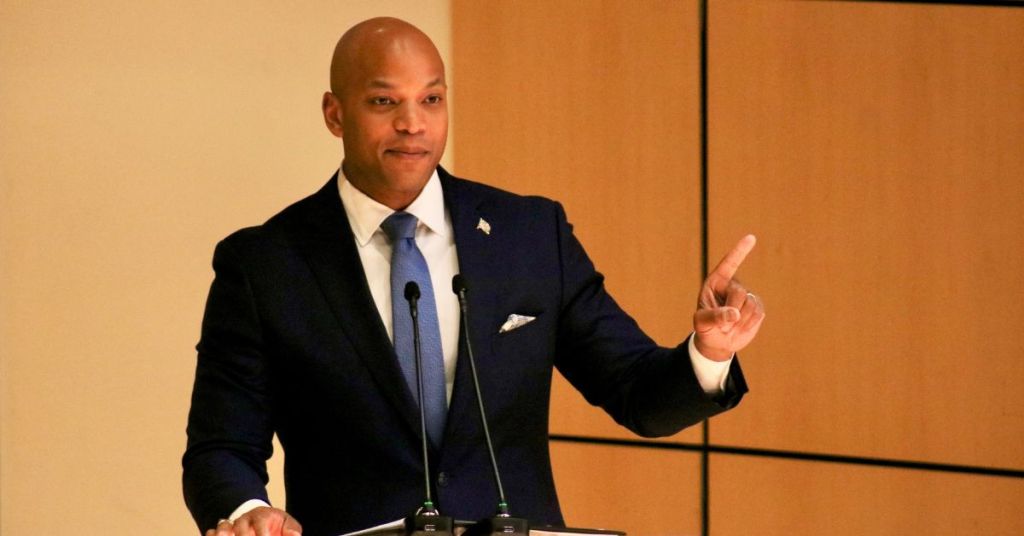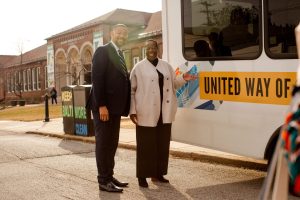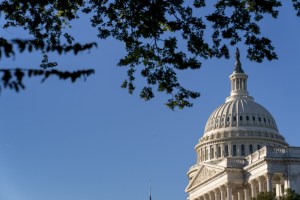By Catherine Pugh
Special to the AFRO
The Reginald Lewis Museum, in partnership with the Thurgood Marshall Center Trust, on April 25 held a memorable event in celebration of the 70th anniversary of Brown vs. Board of Education. The event honored Justice Thurgood Marshall, the first Black man to sit on the Supreme Court. Prior to joining the highest court in the land, Justice Marshall spearheaded the desegregation of schools across the country.
Speakers for the event included the renowned lawyer, professor and civil rights leader Larry Gibson, U.S. Rep. Kweisi Mfume (D-Md.) and National Newspaper Publishers Association President and CEO Benjamin Chavis. Both Mfume and Chavis have served as head of the National Association for the Advancement of Colored People (NAACP).

Maryland Gov. Wes Moore brought greetings and offered his thanks to the panelists for their work on behalf of civil rights, and to Terri Freeman, president of the Reginald Lewis Museum, who served as moderator for the event.
Speaking on the life of Justice Thurgood Marshall and calling him a “gift,” Moore said, “We remember him. We thank God for him. And we remember that the assignment is to make sure that we take that gift. We never forget our power and we make sure that we can make it matter for generations to come.”
Moore gave a special tribute to panelist Gibson, “calling him the architect” of many public officials who have won political office, including himself, and the leader in pushing for the Baltimore Washington International Airport to be named in honor of Thurgood Marshall.
“Dr. Gibson, I am not here without you,” he said.
The panelists shared with the audience their encounters with Thurgood Marshall in his early years and the significance of his contribution to history and to them personally.

Attorney Gibson recalled two occasions: “The first was as an attorney in 1975. I went to his house late one night to try to get him to sign an emergency order in a case that I was handling to do with the schools superintendent, Dr. Roland Patterson,” he said. Gibson remembered he and his colleague getting lost and not arriving at Marshall’s house until 10 minutes after 11 p.m., thinking the worst that could happen was that he would “slam the door in his face.”
Marshall’s sons answered the door; they were little boys then, Gibson told the audience.
“The first thing that Thurgood Marshall said to me in my life was ‘Cousin, this has better be a criminal matter,’” Gibson said, to which he responded, “‘No, Mr. Justice, but it’s about a lawyer and Baltimore.’ He said, ‘Okay come on in.’”
It took about 15 minutes to take care of legal matters but he and his companion did not get out of the house until after 2 a.m. in the morning, Gibson said. Justice Marshall became animated and asked many questions about people and buildings in Baltimore and growing up in the city.
Gibson also recalled the last time he spoke with Justice Marshall and that was 10 years later during the celebration of the renaming of the Circuit Court of Baltimore after NAACP lobbyist Clarence Mitchell. Gibson had gone over to take a picture with Marshall and recalled J.D. Howard, an Afro-American Newspaper photographer, grappled with his camera and it was taking a moment.
“‘What am I supposed to do? Kiss you?’” Gibson recalled Marshall saying. “It was the last thing that Thurgood Marshall said to me.”
Congressman Mfume said he lived at 1834 Division St., two blocks from where Thurgood Marshall grew up in the 1600 Block of Division St.

“There were certain things about the community that were inescapable,” he told the audience. Number one was the Mitchell family and what they were doing in terms of civil rights. Number two was the Murphy family (owners of The AFRO) and what they were doing through publications. And number three, was the shadow of Thurgood Marshall, who had litigated a number of cases that changed civil rights in Baltimore and beyond.
Still, Mfume said, he succumbed to negative influences.
“I dropped out of school, was a member of several gangs and was on my way to hell in a handbasket,” he recalled about his childhood.
“Everyone said, ‘You can’t be this way because you’ve come out of different stuff.’”
Eventually, Mfume turned his life around, graduating from college, working as a radio and television personality, serving several successful stints in city government and in Congress and as president and CEO of the NAACP.
Mfume met Justice Marshall around 1989 or ‘90.
“He was a little grumpy by then,” he recalled. “We talked for a few hours about Division Street (from their shared neighborhoods) and civil rights. It was my last meeting with him.”
Ben Chavis offered a broader view on Marshall and his influence on history.
“To understand the impact of Justice Marshall’s perspective on the United States Constitution you have to examine how living in Baltimore shaped his life,” he told the audience.

Marshall was born July 2, 1908, to Norma Arica, a teacher, and William Canfield Marshall, an amateur writer, railcar waiter and later a chief steward at a ritzy club. On his free days, Mr. Marshall senior would often take his sons to court to observe legal proceedings, and the three would debate legal issues and current affairs together. Though his parents tried to shelter their sons from the overt racism of their time, Marshall still saw and experienced the racism discrimination that would inform his devotion to civil rights: being forced to attend racially segregated schools, barred from using Whites-only public bathrooms, living in a city where the death rate for Blacks was twice that of Whites, being denied entrance to his first college of choice, the University of Maryland Law School, and more.
Marshall was integral in changing that landscape to the relatively freer society that Blacks live in today.
“It is important that we remember how far we have come in these 70 years after Brown v. Topeka,” Chavis said.
“We have made a lot of progress and it is up to us to share that with our younger people and generations to come our progress,” he added. “The forces of evil want to take us back to what they perceive should be the way of life. We must instill in our young people they have to be eternally vigilant and to push back and to fight back. They are more prepared to lead than we are willing to give them credit for.”
Members of Alpha Phi Alpha Fraternity, of which Thurgood Marshall was a member, hosted the reception prior to the discussion in his honor.
The post Thurgood Marshall Center Trust hosts panel discussion ahead of Brown v. Board 70th anniversary appeared first on AFRO American Newspapers.











